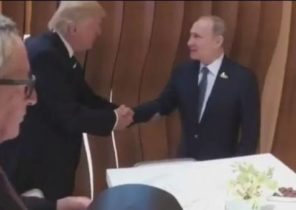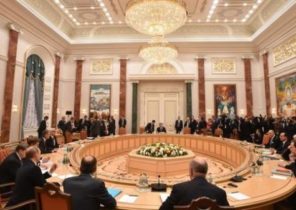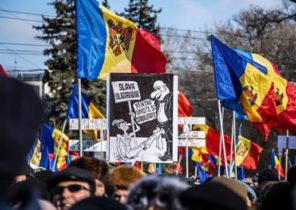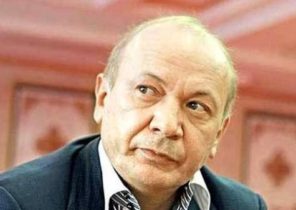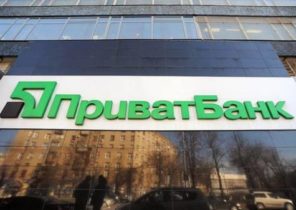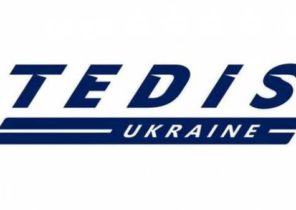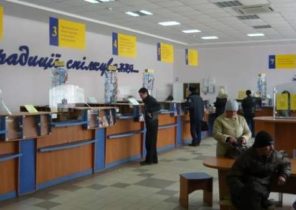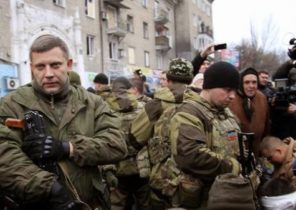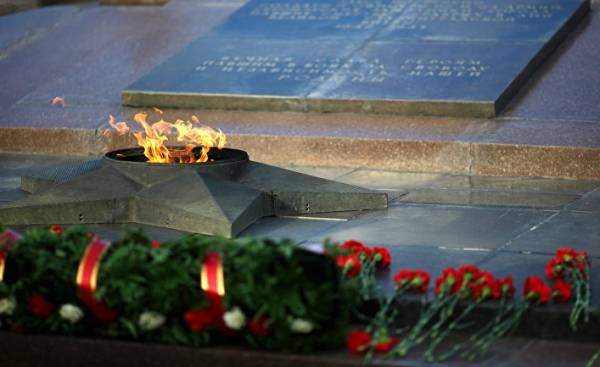
The inscription on the wooden panels seemed almost a mockery given the terrible state of Russian-American relations. “To our two countries never to split into two camps — read it, — for the world in the 21st century critical positive relationships between the U.S. and Russia.”
But in the hall of the Russian cultural centre, located in the upscale district of Washington, negotiators from the us and Russian governments this week relished wine, and were treated to caviar, after spending the day in an attempt to comply with this approval. Had unusual sense of a return to the 1990s- to the warm relations between the former rivals in the cold war.
Despite tense bilateral relationship, which President Donald trump said that they went down “to a historic low”, a small group of military and civilian officials shared secret information to determine what happened to thousands of us and Russian military, missing in conflicts from world war II to the cold war, and even to find out the fate of the Russian pilot, was shot down in 2008 in the skies over Georgia. The so-called technical talks us-Russia joint Commission on POWs and missing persons (2005) were the result of unexpected Russian readiness to cooperation that they have shown in recent months, notes the American side.
All this clearly shows how badly deteriorated the bilateral relationship since 1999, when it was established this cultural center.
On the same day the participants of the meeting discussed the question of the fate of the crew of the American spy plane was shot down in 1951 by the Soviet Union in the sky over the Pacific ocean. A day earlier, Moscow has threatened that it will carry out radar tracking American military aircraft in the skies over Syria. And the Congress at this time to actively discuss the introduction of new sanctions against Russia. But negotiators hope that their meeting will become an example of new opportunities at a time when the United States accused Russia of meddling in electoral politics, when increases the risk of a military confrontation between the armies of the two countries, and when two countries cooperate only in very few areas.
“There is a huge trust deficit,” said American head of the so-called Working group on the cold war Tim Shea (Tim Shea), conversing with other guests in the hall, hung with paintings of Peter I and Catherine II. He was referring to the tension between the two sides. “The last few days have been especially serious. There were a lot of words. So things do not. And here we sit in this room and try to do business.”
Retired Colonel Shea noted that at the beginning of the negotiations, he felt the need to call on colleagues from both parties to refuse mutual suspicions and focus on the common humanitarian work. “We do not do politics, he said. But I thought it was important.”
His Russian colleagues also tried to apply the same signal at the events of this week. One example of this was the fact that the Russian representatives took part in the annual meeting of the National League of families prisoners of war and missing, which is the leading human rights organization.
“We must remember that we are all human,” said the crowd at the reception tall and suave Russian diplomat Maxim Alekseyev, working as a counselor of the Embassy in Washington, where he directs the work from the Russian side.
The joint Commission is gaining momentum, while everything else in the bilateral relationship was at a virtual standstill, except for a shared work space and inspection in the framework of the treaties on control of nuclear weapons. “We here often say that it’s just us and NASA,” said a former employee of the Ministry of defence James Connell (James Connell), now working as the Executive Secretary of the joint Commission, which was established in 1992 by the then presidents George H. W. Bush and Boris Yeltsin.
The American side argues that over the past year was made longer than in the previous ten years, when the Commission’s work stalled.
“It’s had its UPS and downs,” he said at a meeting of the National League of families prisoners of war and missing, air force General retired Robert Fogelsong (Robert Foglesong), a co-chair of the joint Committee. In the first years the work was carried out very actively, he said, but in 2006 the Russian government have questioned the legitimacy of the Commission, and some people on the American side began to ask questions about whether or not to continue these efforts. “The work that we wanted to do, there were large obstacles”, — said the General.
But according to Foglesong, who heads the Commission for the past 11 years, there are now brand new attitude. “Today we have relationships with colleagues is better than it has ever been,” he said, noting that the ongoing behind closed doors discussions “every hour there are new successes”, and “we all feel like brothers, because all are moving in the same direction.”
An important motivation for this work is the provision of access to public records each other. A group from the American side has been working in Russia since 1990-ies, studying information from the archives of the former KGB, GRU and other Soviet military and intelligence agencies, which can help in finding the missing. But the Russians have created the same team in its Embassy in Washington only in 2015, and she is now in collaboration with Americans engaged in searching the information about the missing Russians in the National archives in College Park, Maryland.
This year managed to achieve a real victory, when the Pentagon using a major assistance from the Russian side, has identified the remains of the pilot, second Lieutenant John Mumford (John Mumford), whose plane was shot down by German aircraft fell on the territory of Ukraine in 1944. Mumford was buried in his native Florida.
“This was the result of our work in the archives,” said Colonel Christopher Forbes (Christopher Forbes), who heads the Agency for prisoners of war and missing persons of the European-Mediterranean area. This Agency is the main Agency of the Pentagon to search for missing persons.
This week the Russian delegation has also made a big step forward in giving US assistance in the investigation of the fates 1 608 American servicemen missing during the hostilities in Vietnam, Laos, Cambodia and Thailand. Responding to the request received over 10 years ago, the Russian side handed over to the Americans a package of recently declassified documents about 10 American planes shot down in the skies over North Vietnam, which at that time was a Soviet ally.
“They gave us the documents,” said Forbes, who called the gesture “a real breakthrough”, especially due to the fact that most of the Soviet documents of that period are still classified. “They declassified them at our request,” said Forbes.
When Russian members of the Commission presented on Thursday during the opening session of the National League of families prisoners of war and missing, they were met with a standing ovation by standing.
Russian also seek help. Members of the working group during the cold war focused on the fate of the 242 Soviet soldiers reported missing during the war in Afghanistan in the 1980-ies, when the United States was arming the rebels with portable anti-aircraft missiles, which inflicted great damage to the Soviet air force. The Russian side also asked Americans to contact their allies, such as Pakistan, which may have additional information about the fate of Russian prisoners of war since the conflict.
And Moscow is interested in the fate of the Russian pilot, was shot down in 2008 during the conflict with Georgia, which in the past was a Soviet Republic, and now seeks to join NATO. “We are working with the Georgians in an attempt to find answers, said Forbes, who went in order to Georgia. — We do have relationships with some of these countries”.
But the bonds remain strong since the Second world war, when our countries were allies. According to Russian estimates, in the war of the missing four million Soviet soldiers. The Embassy showed a documentary about how Russia is engaged in the search for and identification of the victims in their Western forests.
“We understand the essence of this mission — said the Russian Colonel Andrey Taranov, who came from Moscow as a member of the Russian delegation, and whose grandfather has been missing during the Second world war. We are ready to continue this work.” The rams have promised to give more information about the American losses during the Vietnam war.
Wednesday evening at sunset, without any pomp and publicity, but in the presence of many curious tourists, the Russian delegation laid a wreath at the tomb of the Unknown soldier at Arlington national cemetery. The ceremony was held to commemorate the anniversary of the German attack on the Soviet Union in 1941.
In the cultural center of the Russian side showed a layout of the monument, which depicts three of the pilot. The Russian government plans to present this monument, Elizabeth city, North Carolina, where at the beginning of the Second world war he trained Soviet pilots. And at the end of negotiations Russian gave the us military t-shirt with the symbols of solidarity, soldiers of many countries. Some American and Russian negotiators could be seen talking and exchanging jokes in the hotel where the meeting took place.
“We have a lot in common history that belongs to both the USA and Russia, — said Alekseev, who had put on a badge with the American and Russian flags. It may serve as an example for future cooperation. This cooperation continues despite all the confusion and rumors”.
Colonel Forbes agreed with him, saying that this week was “a brilliant example of how we can work together to achieve results”.
It is unclear whether this level of cooperation, or that cooperation will be hostage to the deep division between the two countries. But Foglesong expressed confidence that the joint Commission will continue to work and not become a victim of political problems existing between our countries.
Rams said: “It is a noble mission.”
